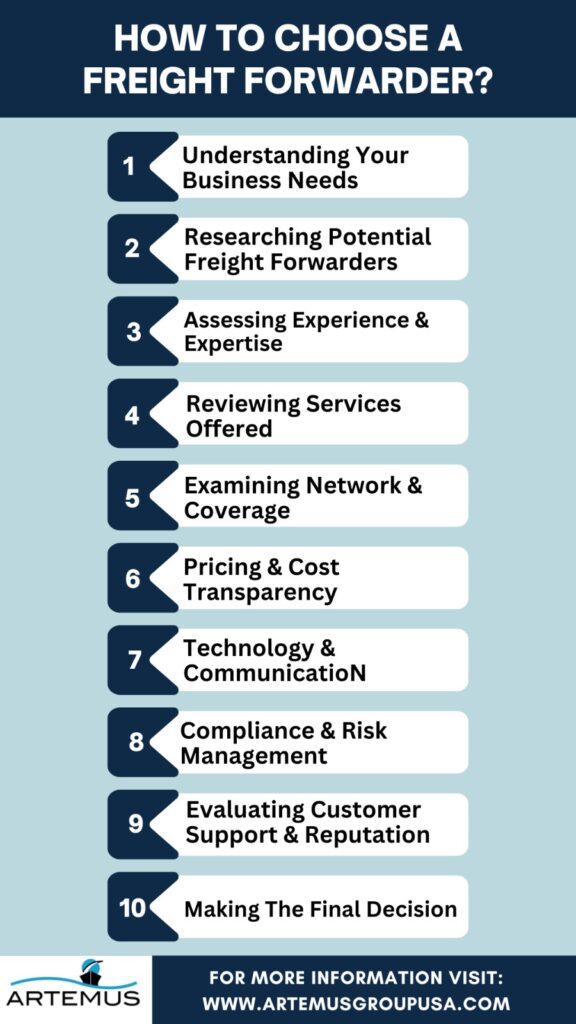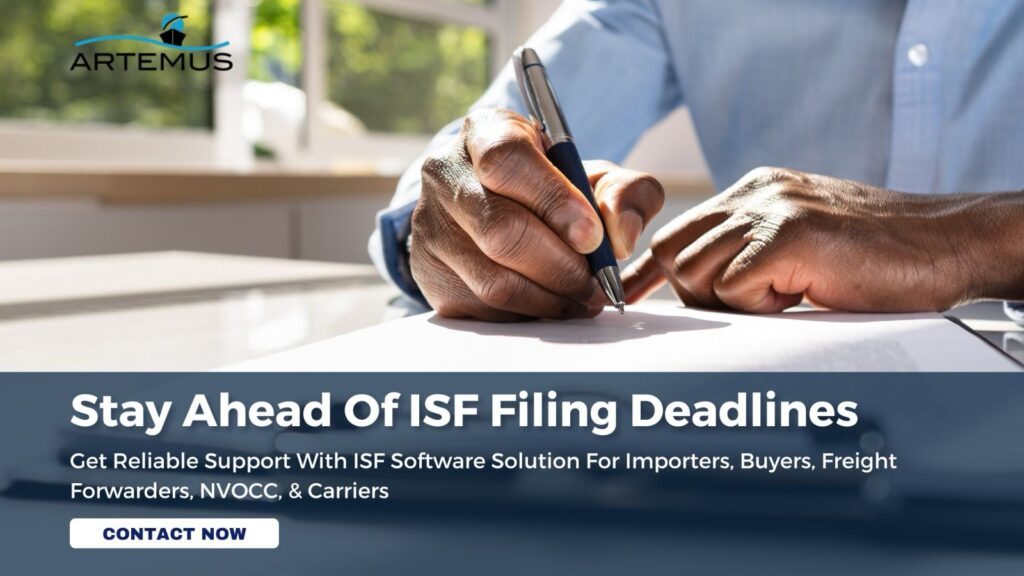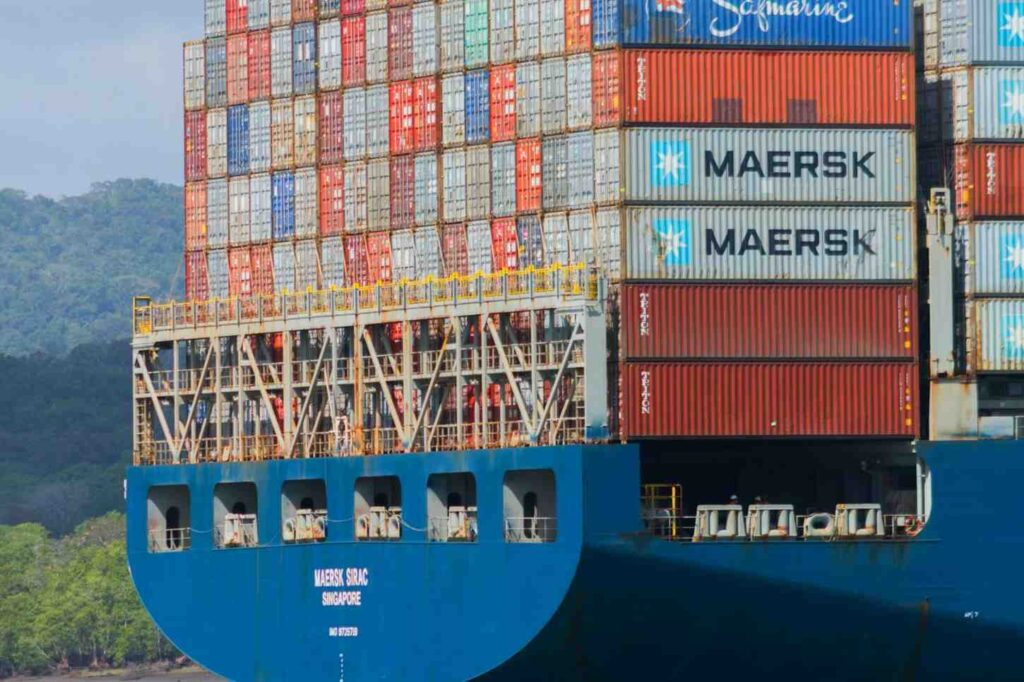
What Is Inbound Logistics & Outbound Logistics? A 2025 Guide
In the dynamic world of supply chain management, understanding the nuances of inbound and outbound logistics is crucial for operational

Navigating the intricate web of global logistics requires the expertise and support of a reliable freight forwarder. Whether you’re a seasoned importer/exporter or venturing into the world of international trade for the first time, understanding how to choose a freight forwarder can make all the difference in streamlining your supply chain and guaranteeing the punctual arrival of goods.
In this comprehensive guide, we’ll explore the essential factors to consider when selecting a freight forwarder, empowering you to make an informed decision that aligns with your business needs and goals.
Furthermore, in today’s digital age, technology plays a crucial role in enhancing the efficiency and effectiveness of freight forwarding operations. That’s where Artemus Transportation Solutions steps in. With our cutting-edge ISF and AMS software solutions tailored specifically for freight forwarders, we provide a seamless and intuitive platform to streamline import documentation processes and ensure compliance with regulatory requirements.
Table Of Contents

In the globalized world of commerce, selecting the right freight forwarder can significantly impact the efficiency and success of your supply chain. Whether you’re a small business or a large corporation, understanding the nuances of freight forwarding and how to choose the right partner is crucial. Below, we delve into a detailed guide on how to choose a freight forwarder that aligns with your business needs and objectives.
Before embarking on your search for a freight forwarder, it’s essential to have a clear understanding of your business’s shipping requirements. This involves identifying the type of goods you need to transport, the volume of shipments, any specific handling requirements, and potential restrictions. By understanding your needs upfront, you’ll be better equipped to evaluate potential freight forwarders and ensure they can meet your specific requirements.
Once you’ve defined your shipping needs, the next step is to research potential freight forwarders. Start by exploring different companies through online resources, directories, and industry-specific platforms. Pay attention to their reputation, years of operation, and customer reviews. Additionally, seek recommendations from industry peers or associations to identify freight forwarders that have a proven track record of success.
Experience and expertise are critical factors to consider when choosing a freight forwarder. Look for companies that have a strong background in handling shipments similar to yours, whether it’s in your industry or specific geographical regions. Check for relevant certifications or accreditations that demonstrate their commitment to quality and compliance. Case studies or testimonials from past clients can also provide valuable insights into a freight forwarder’s capabilities and reliability.
Reviewing the range of services offered by freight forwarders is essential to ensure they can fulfill your shipping requirements effectively. Beyond standard freight forwarding services, such as transportation and customs clearance, consider additional value-added services they may offer, such as warehousing, distribution, or cargo insurance. Assess whether their services align with your business needs and if they can provide a comprehensive solution for your supply chain.
The network and coverage of a freight forwarder play a significant role in their ability to handle your shipments efficiently. Evaluate their global reach and network of partners to ensure they can facilitate shipments to your desired destinations. Verify their capabilities in key markets or regions relevant to your business, as well as their proficiency in handling different modes of transportation, such as air, ocean, or road freight.
Pricing and cost transparency are critical considerations when choosing a freight forwarder. Request detailed quotes from multiple companies and carefully review the breakdown of costs, including any additional fees or surcharges. While cost is undoubtedly a factor, it’s essential to weigh pricing against the level of service and reliability offered by each freight forwarder. Beware of overly low prices that may indicate subpar service or hidden costs down the line.
In today’s digital age, technology and communication capabilities are increasingly important in freight forwarding. Evaluate the freight forwarder’s use of technology for shipment tracking, visibility, and documentation management. Consider their communication channels and responsiveness to inquiries or issues. Ensure their technology infrastructure is compatible with your systems and processes to facilitate seamless collaboration.
Compliance with regulations and effective risk management are non-negotiable aspects of freight forwarding. Verify that the freight forwarder adheres to relevant industry regulations and standards, particularly regarding customs clearance and security protocols. Assess their risk management practices, including insurance coverage and contingency plans for potential disruptions such as natural disasters or geopolitical events.
The level of customer support and reputation of a freight forwarder can significantly impact your experience as a client. Evaluate their responsiveness to inquiries, willingness to address concerns, and overall commitment to customer satisfaction. Check for any unresolved complaints or negative feedback from past clients, as well as testimonials or references that attest to their reliability and professionalism.
After thorough research and evaluation, it’s time to make the final decision on which freight forwarder to partner with. Consolidate your findings and compare freight forwarders side by side, weighing the pros and cons of each option against your specific needs and priorities. Ultimately, choose a freight forwarder that offers the best combination of experience, services, reliability, and value for your business.
Related: How To Become A Freight Forwarder: A Stepwise Guide
Selecting the right freight forwarder is a critical decision that can significantly impact the efficiency, reliability, and overall success of your supply chain operations. Here’s why choosing the right freight forwarder is of utmost importance:
A reliable freight forwarder serves as a crucial link in your logistics chain, coordinating the movement of goods from suppliers to customers efficiently and seamlessly. By choosing a competent freight forwarder, you can ensure that your shipments are handled with precision and care, minimizing delays, errors, and disruptions along the way.
Experienced freight forwarders bring invaluable expertise and knowledge to the table, especially in navigating complex international regulations, customs procedures, and transportation logistics. They understand the intricacies of various shipping methods, routes, and modes of transportation, allowing them to optimize your supply chain and mitigate potential risks effectively.
The right freight forwarder offers access to an extensive network of carriers, agents, and partners worldwide, enabling you to reach markets and customers across the globe. They have established relationships with reliable transportation providers, customs brokers, and warehousing facilities, ensuring smooth and efficient movement of goods regardless of the destination.
Compliance with regulations and effective risk management are paramount in international shipping. A reputable freight forwarder stays abreast of evolving regulations and requirements, ensuring that your shipments comply with legal and regulatory standards at all times. They also have robust risk management practices in place to anticipate and mitigate potential challenges, such as customs delays, port congestion, or geopolitical uncertainties.
While cost is a crucial factor in logistics, choosing the right freight forwarder goes beyond simply opting for the lowest price. A reliable freight forwarder offers value-added services, efficient routing options, and cost-saving strategies that help optimize your shipping costs without compromising on quality or reliability. They provide transparent pricing structures and comprehensive quotes that enable you to make informed decisions that align with your budget and business objectives.
A dependable freight forwarder plays a pivotal role in enhancing customer satisfaction by ensuring timely delivery, accurate tracking, and proactive communication throughout the shipping process. By partnering with a freight forwarder that prioritizes customer service and responsiveness, you can build trust and loyalty with your customers, ultimately driving repeat business and positive word-of-mouth referrals.
As your business grows and evolves, you need a freight forwarder that can adapt to your changing needs and scale with your operations. The right freight forwarder offers scalability and flexibility, whether you’re expanding into new markets, increasing shipping volumes, or exploring alternative transportation options. They provide tailored solutions and personalized support that accommodate your unique requirements and objectives.
In essence, choosing the right freight forwarder is paramount to the success and competitiveness of your business in today’s global marketplace. By partnering with a reputable and experienced freight forwarder, you can streamline your logistics operations, minimize risks, and unlock new opportunities for growth and expansion.
Related: What Does A Freight Forwarder Do? Functions & Future Trends

Artemus Transportation Solutions specializes in providing innovative software solutions tailored to the needs of freight forwarders, with a particular focus on Importer Security Filing (ISF) and Automated Manifest Systems (AMS). Their comprehensive ISF and AMS software solutions empower freight forwarders to streamline and automate the complex process of filing import documentation, ensuring compliance with U.S. Customs and Border Protection regulations.
With Artemus’s intuitive and user-friendly platform, freight forwarders can efficiently manage ISF and AMS filings, track shipment statuses in real time, and generate accurate reports to enhance visibility and control over their supply chain operations. By leveraging Artemus Transportation Solutions’ cutting-edge software, freight forwarders can enhance operational efficiency, minimize errors, and deliver superior service to their clients in the ever-evolving landscape of international trade.
Related: NVOCC VS Freight Forwarder: Differences & Who To Choose?
The most important criteria for selecting a freight forwarder include their experience and expertise in your industry or niche, their global network and coverage to handle shipments to your desired destinations efficiently, and their commitment to compliance, risk management, and customer support.
To choose a forwarder, assess their experience, services offered, global network, pricing transparency, and customer support, ensuring alignment with your business needs and priorities.
To find the best freight forwarder, conduct thorough research, consider recommendations, evaluate experience, services, global network, pricing transparency, and customer support, and make a decision based on alignment with your specific shipping requirements and business goals.

Understanding how to choose a freight forwarder is a pivotal decision that can significantly impact the efficiency, reliability, and success of your supply chain operations. By thoroughly understanding your business needs, conducting comprehensive research, and evaluating key criteria such as experience, services offered, global network, pricing transparency, and customer support, you can make a knowledgeable choice that matches your particular needs and goals.
Remember, the best freight forwarder is not just a service provider but a strategic partner committed to optimizing your logistics operations and driving your business forward in the dynamic world of international trade. Choose wisely, and reap the benefits of a seamless and efficient supply chain that propels your business to new heights of success.
Related: Customs Broker VS Freight Forwarder: 5 Key Differences

In the dynamic world of supply chain management, understanding the nuances of inbound and outbound logistics is crucial for operational

In today’s interconnected world, businesses rely heavily on global trade to expand their markets, access new resources, and drive growth.

Importing goods for resale in the USA presents a lucrative business opportunity, but navigating the complexities of U.S. customs regulations,
Get In Touch
Artemus’ Software Solutions for ISF, AMS, Japan AFR, eManifest Canada, & Panama B2B filings.